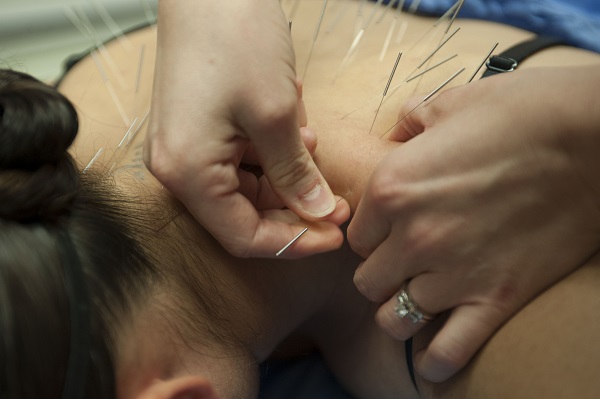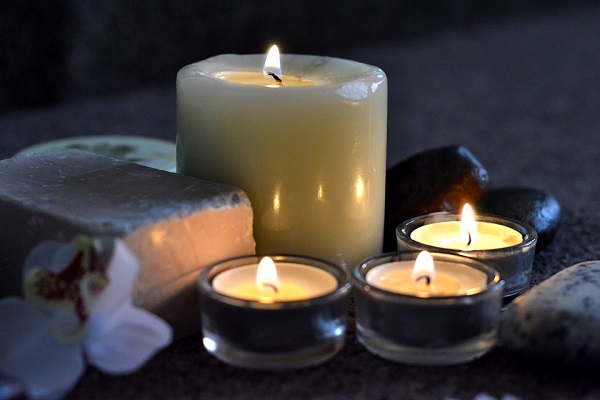Many people may be wondering, does acupuncture work? The purpose of our article is to help you answer the question by teaching you a little bit about acupuncture therapy and its humble beginnings. We will also briefly explore the scientific basis for how it works and will offer several tips to help you improve your chances of success.
What Is Acupuncture and How Does It Work?
Before moving on to answering “How does acupuncture work?”, we’re going to briefly explore its origins. China is credited with the invention of acupuncture with recorded documents mentioning its practice several hundred years before the common era.
Before the advent of specialized needles, sharpened bones and stones were used in acupuncture treatment sessions. It’s important to note that acupuncture is recognized as an alternative treatment method that can help control and alleviate both chronic and short-term pain symptoms.
One of the central tenants of acupuncture therapy is that your body’s Qi travels along 12 main pathways known as meridians. For those who do not know, Qi is believed to be part of your circulating life force energy. It plays a key role in a wide range of traditional Chinese medicine practices and spiritual ceremonies.
The signature item that gives away acupuncture therapy is the use of long and thin needles that are used to pierce the skin in various places. From a spiritual and traditionalist standpoint, the needles are inserted into specific areas along your body’s meridians to help restore the proper flow of Qi.

However, there is growing scientific evidence that acupuncture works for mild and moderate pain relief as well. This will be discussed in greater detail in the following section.
How Does Acupuncture Work to Relieve Pain?
At this point in our article, you should have a sound understanding of the beginnings of acupuncture therapy and be able to answer the question, “What does acupuncture do?”. However, we’re also going to help you understand how acupuncture therapy can help relieve pain from a scientific standpoint.
One of the natural components your body releases to help you manage pain is called endorphins. These peptide compounds are created via the central nervous system and help you to relax, feel less pain, and improve your overall mood.
Compared to prescription pain medications like opioids, endorphins are a completely natural chemical that doesn’t result in withdrawal symptoms or dependence. In fact, healthy endorphin levels are often associated with improved health and a general sense of well-being.
Fortunately, there are multiple ways to trigger the release of endorphins in your body. One of the most natural is slight amounts of pain. This is where acupuncture therapy comes into play. The needles are designed to cause a slight pinch when they are inserted into the skin. Not enough to cause lasting pain, the response it triggers within your body is just enough to cause an endorphin surge to release.
For many patients, this helps reduce or eliminate pain throughout the body. Fortunately, you can supplement this endorphin surge with other activities that trigger a positive response from your body, one of the simplest being to just laugh and smile more in your daily life.
4 Tips to Make the Most out of Acupuncture Therapy
1. Stick With a Licensed Professional
Since acupuncture therapy involves the use of small needles, it’s extremely important that you look for a trained and licensed professional in your area. Although individual licensing requirements will vary from state to state, most places require that the practitioner keeps their license posted in a conspicuous location.
Some additional items to pay attention to when scoping out a new potential acupuncture therapist include designated disposal bins for used needles, the presence of first aid kits, and private treatment areas. As always, don’t be afraid to ask for professional recommendations from friends and colleagues as well.
2. Wear Comfortable Clothing
Acupuncture therapy is all about reducing stress and making you feel good. Going into an acupuncture therapy session in tight clothes is the wrong move for many reasons. For starters, it will make it much harder to dress and undress for your treatment session. In addition, spending a long amount of time focusing on your appearance will keep you from approaching the session with the proper mindset.
From strictly a treatment perspective, tight clothing can also make you feel worse after treatment. The reason for this is that your body is likely to be tender around your needle insertion points. With this in mind, stick with clothes that allow plenty of room to move about freely.
3. Avoid Alcohol and Caffeine
Alcohol and caffeine are both strongly discouraged before and after an acupuncture therapy session. One of the biggest reasons for this is that both alcohol and caffeine work to dehydrate your body. This makes it harder for your body to process toxic chemicals. It also makes it much more difficult to process chemicals like endorphins.
For best results, stick with water and light fruit juices. In some cases, tea can also be used. Options like earl grey are a particularly popular choice for many individuals. If the tea is caffeinated, try to keep the amount you drink to a minimum to help reduce the risk of dehydration.
4. Allow Ample Time
It’s entirely normal to be rushed in your regular life. However, an acupuncture therapy session should be all about relaxing and letting yourself go. With this fact in mind, make sure that you allow yourself plenty of time before and after your appointment.

In most cases, it’s best to have your appointment on one of your days off. This will offer you the most flexibility and help reduce the likelihood of feeling rushed through your treatment session. In addition, first-time users should allow ample recovery time to see how their body handles the treatment.
Conclusion
Does acupuncture work? The answer to that question is a yes for many individuals. Just remember that this is an alternative treatment path and that your individual results will vary. Now that you understand its basics, you’re ready to start looking into a licensed and trained practitioner in your area. Does acupuncture work for you? Feel free to tell us in the comments.
Recommended Read: A Guide to Acupuncture for Weight Loss

Leave a Comment